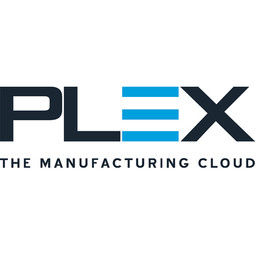Polamer Precision's Journey to Data-Driven Aerospace Manufacturing with Plex Smart Manufacturing Platform

公司规模
Mid-size Company
地区
- America
国家
- United States
产品
- Plex Smart Manufacturing Platform
- JobBOSS
- QuickBooks
技术栈
- Cloud Computing
- Data Analytics
- Real-Time Data Processing
实施规模
- Enterprise-wide Deployment
影响指标
- Productivity Improvements
- Cost Savings
- Customer Satisfaction
技术
- 分析与建模 - 实时分析
- 平台即服务 (PaaS) - 数据管理平台
- 功能应用 - 企业资源规划系统 (ERP)
适用行业
- 航天
适用功能
- 商业运营
- 质量保证
用例
- 资产跟踪
- 机器状态监测
- 预测性维护
服务
- 云规划/设计/实施服务
- 数据科学服务
- 系统集成
关于客户
Polamer Precision is a global aerospace manufacturing company based in New Britain, CT, specializing in complex aerospace engine components for demanding applications. The company collaborates with clients to solve engineering and production challenges, setting itself apart from other sub-primes in the aerospace industry by embracing innovation and new technology. Polamer Precision has built a reputation for surpassing expectations and consistently setting the bar for lean manufacturing. The company manufactures complex engine and airframe components for military and commercial aircraft engines, serving several leading aerospace companies. Despite its success, Polamer Precision aims for aggressive growth targets and strives to meet rigorous quality standards and demonstrate regulatory compliance cost-effectively.
挑战
Polamer Precision faced several challenges in the aerospace industry, including meeting stringent quality standards and regulatory requirements, competing against larger companies with sophisticated processes, and dealing with paper-based processes that hindered cross-functional visibility. The company was not large enough to justify a major ERP implementation but needed a scalable system to support rapid growth. The reliance on paper-based processes made it difficult to optimize production and meet the demands of their operation.
解决方案
Polamer Precision implemented the Plex Smart Manufacturing Platform as its system of record for all departments, making it the single source of truth for the organization. The platform collects and analyzes data from all processes in real time, generating statistics and feedback to streamline and optimize business processes. Digital displays show data on machine operator efficiency and energy production, while the Plex system analyzes manufacturing data to dictate the best processes and tools for each job. This approach maximizes uptime and increases productivity. The company can now plan workflow tasks, scheduling, production, and headcount more effectively, reducing the cost of doing business as it grows. Plex also enables Polamer Precision to maintain end-to-end traceability for all parts, providing complete data on any component to reassure customers about product quality.
运营影响
数量效益

Case Study missing?
Start adding your own!
Register with your work email and create a new case study profile for your business.
相关案例.

Case Study
Airbus Soars with Wearable Technology
Building an Airbus aircraft involves complex manufacturing processes consisting of thousands of moving parts. Speed and accuracy are critical to business and competitive advantage. Improvements in both would have high impact on Airbus’ bottom line. Airbus wanted to help operators reduce the complexity of assembling cabin seats and decrease the time required to complete this task.

Case Study
Aircraft Predictive Maintenance and Workflow Optimization
First, aircraft manufacturer have trouble monitoring the health of aircraft systems with health prognostics and deliver predictive maintenance insights. Second, aircraft manufacturer wants a solution that can provide an in-context advisory and align job assignments to match technician experience and expertise.

Case Study
Aerospace & Defense Case Study Airbus
For the development of its new wide-body aircraft, Airbus needed to ensure quality and consistency across all internal and external stakeholders. Airbus had many challenges including a very aggressive development schedule and the need to ramp up production quickly to satisfy their delivery commitments. The lack of communication extended design time and introduced errors that drove up costs.

Case Study
Accelerate Production for Spirit AeroSystems
The manufacture and assembly of massive fuselage assemblies and other large structures generates a river of data. In fact, the bill of materials for a single fuselage alone can be millions of rows of data. In-house production processes and testing, as well as other manufacturers and customers created data flows that overwhelmed previous processes and information systems. Spirit’s customer base had grown substantially since their 2005 divestiture from Boeing, resulting in a $41 billion backlog of orders to fill. To address this backlog, meet increased customer demands and minimize additional capital investment, the company needed a way to improve throughput in the existing operational footprint. Spirit had a requirement from customers to increase fuselage production by 30%. To accomplish this goal, Spirit needed real-time information on its value chain and workflow. However, the two terabytes of data being pulled from their SAP ECC was unmanageable and overloaded their business warehouse. It had become time-consuming and difficult to pull aggregate data, disaggregate it for the needed information and then reassemble to create a report. During the 6-8 hours it took to build a report, another work shift (they run three per day) would have already taken place, thus the report content was out-of-date before it was ever delivered. As a result, supervisors often had to rely on manual efforts to provide charts, reports and analysis.

Case Study
Developing Smart Tools for the Airbus Factory
Manufacturing and assembly of aircraft, which involves tens of thousands of steps that must be followed by the operators, and a single mistake in the process could cost hundreds of thousands of dollars to fix, makes the room for error very small.







